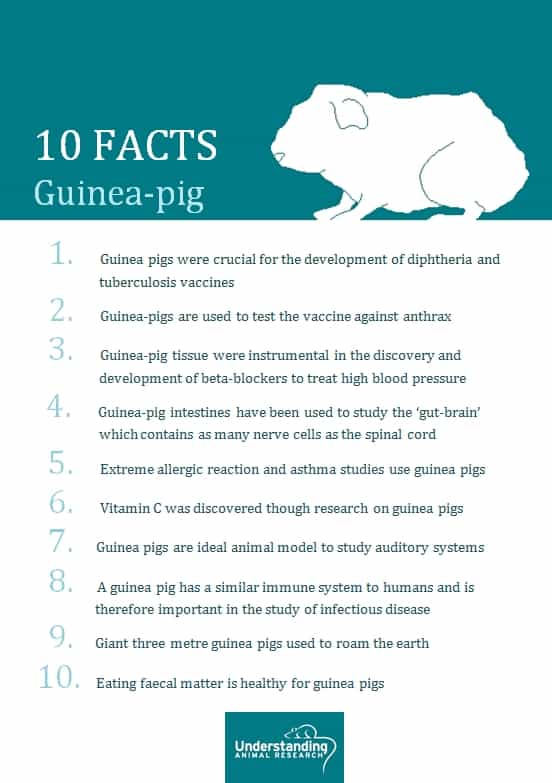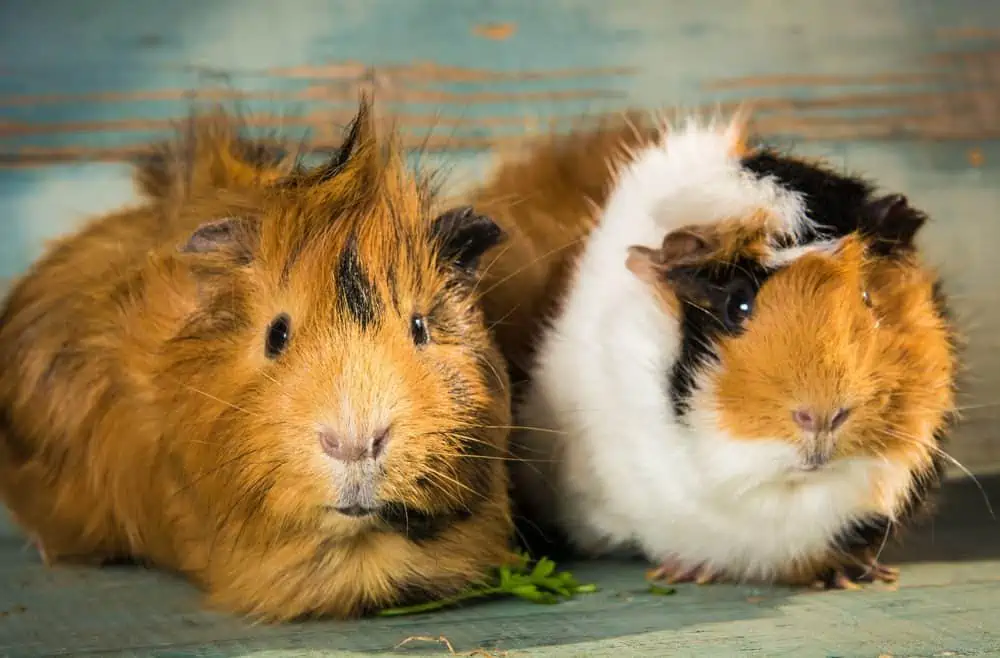Guinea pigs are social animals that communicate through various sounds and body language. These furry creatures are herbivores and need a diet high in Vitamin C. Guinea pigs have unique personalities and can form strong bonds with their owners.
They are relatively easy to care for and can live up to 5-7 years with proper care. It’s important to provide them with a spacious cage, fresh hay, and plenty of veggies to keep them healthy and happy. Guinea pigs are curious by nature and enjoy exploring their surroundings, making them delightful pets for both children and adults.
With their adorable squeaks and charming behaviors, guinea pigs are sure to bring joy and companionship to any household.
:max_bytes(150000):strip_icc()/GettyImages-638710017-5cc903c317d047b9b1f8557fb14fef58.jpg)
Credit: www.treehugger.com
Contents
The Origins Of Guinea Pigs
Ancient Roots In South America
Guinea pigs, also known as cavies, have a fascinating history that traces back to ancient South America. The domestication of guinea pigs dates back over 7,000 years, with evidence of their presence found in the Andean region of present-day Peru and Bolivia.
From Andean Regions To Global Pets
The indigenous people of the Andes domesticated guinea pigs for food and traditional medicinal purposes. Over time, these adorable creatures transitioned from being a food source to beloved pets, and were eventually introduced to Europe by Spanish and Dutch traders in the 16th century. From there, guinea pigs gained popularity as pets around the world, captivating people with their gentle nature and charming personalities.

Credit: www.understandinganimalresearch.org.uk
Physical Characteristics
When it comes to physical characteristics, guinea pigs boast a range of unique and fascinating traits. From their diverse coat varieties to their distinctive anatomical features, these little creatures are a wonder of nature. Let’s delve into the intriguing physical characteristics of guinea pigs.
Varieties In Coat And Color
Guinea pigs come in a delightful array of coat varieties and colors, making them visually captivating pets. Whether it’s the smooth, short-haired coat of the American guinea pig or the long, flowing locks of the Peruvian guinea pig, there is a coat type to suit every preference. The colors span the spectrum, from solid blacks and whites to striking combinations like tortoiseshell and agouti. With such diversity, guinea pigs never fail to impress with their stunning appearances.
Unique Anatomical Features
These charming creatures possess some truly unique anatomical features. One of the most captivating aspects is their constantly growing teeth, which require regular chewing to prevent overgrowth. Their whiskers, known as vibrissae, are not only adorable but also serve as sensory tools, aiding in navigation and object detection. Additionally, guinea pigs have a distinct pair of incisors that are constantly on display due to their inability to close their mouths completely. These endearing physical traits contribute to the undeniable charm of guinea pigs.
Social Creatures
Guinea pigs are fascinating creatures with a rich social life that sets them apart as delightful companions. Understanding their social behaviors and needs is essential for providing them with a happy and fulfilling life. Let’s explore the intriguing world of guinea pig socialization.
The Importance Of Companionship
Guinea pigs thrive in the company of their kind. They are highly social animals that enjoy interacting with their fellow guinea pigs. Companionship plays a vital role in their well-being, and they can become lonely and stressed if kept alone for extended periods. Therefore, it’s recommended to keep them in pairs or small groups to ensure they have the social interaction they crave.
Communication Through Sounds
Guinea pigs are vocal communicators, using a variety of sounds to express themselves. They squeak, purr, and chirp to convey their emotions and needs. Understanding their vocal cues is crucial for providing them with proper care and attention. Paying attention to their sounds can help you decipher their moods and ensure they feel safe and secure in their environment.

Credit: www.burgesspetcare.com
Dietary Needs
When it comes to the dietary needs of guinea pigs, it is essential to provide them with a balanced and nutritious diet to maintain their health and well-being.
Essential Nutrients For Health
Guinea pigs require a diet rich in fiber, vitamin C, and protein to stay healthy and active.
- Fiber: Crucial for proper digestion and maintaining dental health.
- Vitamin C: Essential to prevent scurvy, a common health issue in guinea pigs.
- Protein: Needed for muscle growth and overall development.
Foods To Avoid
There are certain foods that should be avoided to prevent health problems in guinea pigs.
- High-sugar foods: Can lead to obesity and dental issues.
- Processed foods: Lack essential nutrients and can cause digestive problems.
- Caffeine and chocolate: Toxic to guinea pigs and should never be fed to them.
Reproductive Facts
Discover fascinating reproductive facts about guinea pigs, such as their ability to reproduce quickly and the short gestation period of just 59-72 days. These small creatures can have multiple litters in a year, showcasing their remarkable reproductive capabilities.
Reproductive Facts:Guinea pigs have a high birth rate, with females reaching sexual maturity as early as 4 weeks old. This means they can become pregnant as soon as they are weaned from their mothers. A female guinea pig’s gestation period lasts from 59 to 72 days, and they can give birth to litters of up to 8 pups. On average, a female guinea pig can give birth to 4 litters per year.Parental care and offspring are critical for the survival of guinea pig pups. Female guinea pigs provide their young with milk for the first three weeks of their lives, after which they are weaned. In contrast, male guinea pigs do not provide any parental care. The mother guinea pig will also clean her pups regularly to keep them clean and healthy.Guinea pigs are social animals and prefer to live in groups, which is why it is essential to be cautious when introducing new guinea pigs to a group. If a male guinea pig is introduced to a group of females, he may attempt to mate with all the females, which can cause stress and fighting. It is best to introduce guinea pigs of the same sex to avoid breeding and fighting.Overall, guinea pigs are fascinating animals with unique reproductive characteristics. Their high birth rate and need for parental care make them an interesting pet to observe and care for.Lifespan And Health
When it comes to Guinea pigs, understanding their lifespan and health is crucial. Let’s explore some interesting facts about these adorable pets.
Average Life Expectancy
- Guinea pigs have an average life expectancy of 4 to 8 years.
- Proper care and a balanced diet can help extend their lifespan.
- With good care, some Guinea pigs can live up to 10 years.
Common Health Issues
- Respiratory infections are a frequent health concern in Guinea pigs.
- Obesity can lead to various health problems in these pets.
- Dental issues like overgrown teeth are common in Guinea pigs.
Guinea Pigs In Research
Guinea pigs are commonly used in scientific research due to their docile nature and ease of handling. They are also interesting animals, with unique physical characteristics such as teeth that continuously grow throughout their lives.
Guinea pigs are popular pets, but they also play an important role in scientific research. These small animals have been used in various studies for many years due to their unique biological characteristics and ease of handling. In this blog post, we will focus on Guinea Pigs in Research, specifically their contribution to science and ethical considerations.Contribution To Science
Guinea pigs have contributed to many scientific discoveries over the years. For instance, they were used in the development of the whooping cough vaccine in the 1930s. Later on, they became a popular model for studying the effects of radiation on living organisms. Guinea pigs have also been used to study the effects of various drugs on the respiratory and cardiovascular systems.Today, researchers use guinea pigs to study a wide range of diseases, including cancer, diabetes, and arthritis. They are also used to test new medications and vaccines before they are tested on humans. Guinea pigs are particularly useful in the study of infectious diseases because they have similar immune systems to humans.Ethical Considerations
While guinea pigs have played an important role in scientific research, there are also ethical considerations to take into account. Animal welfare is a major concern, and researchers must follow strict guidelines to ensure that guinea pigs are treated humanely. This includes providing proper housing, nutrition, and medical care.Another ethical consideration is the use of anesthesia and pain management during experiments. Guinea pigs are often used in studies that involve surgery or other invasive procedures, and it is important to minimize their pain and suffering. Researchers must also consider the number of animals used in a study and ensure that it is kept to a minimum.In conclusion, guinea pigs have made significant contributions to scientific research, but it is important to ensure that their welfare is protected. By following ethical guidelines and minimizing their pain and suffering, researchers can continue to use guinea pigs in important studies that benefit both human and animal health.Cultural Impact
Discover fascinating facts about Guinea Pigs that showcase their cultural impact on pet enthusiasts worldwide. These adorable rodents are known for their social nature and diverse vocalizations, making them beloved companions for all ages. From their unique dietary habits to their gentle temperament, Guinea Pigs continue to capture hearts globally.
Guinea pigs have been an important part of cultural traditions in many parts of the world. They have been valued for their meat, fur, and even for their spiritual significance. In this section, we will explore the various ways in which guinea pigs have impacted cultures around the world.Symbolism
In Andean cultures, guinea pigs are considered sacred animals. They were often used in religious ceremonies and were believed to have healing powers. Guinea pigs were also seen as a symbol of abundance and fertility. In fact, it was common for families to keep guinea pigs in their homes as a way to ensure prosperity.Folklore
Guinea pigs have also played a role in folklore and storytelling. In some Native American traditions, guinea pigs were seen as tricksters who would use their cunning to outsmart their enemies. In other cultures, they were believed to be messengers of the gods.In modern media, guinea pigs have become popular pets and are often featured in children’s books and cartoons. They are known for their cute and cuddly appearance, which has made them a favorite among children and adults alike.Overall, guinea pigs have had a significant impact on cultures around the world. Their spiritual significance, symbolism, and role in folklore have made them an important part of many traditions. Whether as a source of food, a spiritual symbol, or a beloved pet, guinea pigs continue to capture our imaginations and hearts.Frequently Asked Questions
Faq 1: How Long Do Guinea Pigs Live?
Guinea pigs typically live for around 5 to 7 years, but some can live up to 8 years or more with proper care and a healthy diet. Providing a balanced diet, regular veterinary check-ups, and a clean living environment can help ensure a longer lifespan for your furry friend.
Faq 2: What Do Guinea Pigs Eat?
Guinea pigs are herbivores and require a diet rich in fresh fruits, vegetables, hay, and pellets. They should have a constant supply of fresh water as well. Avoid feeding them foods that are toxic to them, such as chocolate, onions, and certain plants.
Faq 3: How Should I Handle My Guinea Pig?
When handling a guinea pig, it’s important to approach them calmly and gently. Support their body with both hands, one hand under their chest and the other supporting their hindquarters. Avoid picking them up by their legs or squeezing them too tightly.
Always supervise children when handling guinea pigs to ensure their safety.
Faq 4: Do Guinea Pigs Require Companionship?
Yes, guinea pigs are social animals and thrive in the company of their own kind. It is recommended to have at least two guinea pigs to keep each other company and prevent loneliness. However, it’s important to introduce new guinea pigs slowly and carefully to avoid any territorial issues.
Conclusion
Guinea pigs are fascinating creatures that make wonderful pets. From their unique physical characteristics to their social behavior, there is always something interesting to learn about them. Whether it’s their ability to communicate through various sounds or their need for a balanced diet, guinea pigs truly are remarkable animals.
By understanding their needs and providing them with a loving home, we can ensure their well-being and enjoy their delightful companionship for years to come. So, if you’re considering getting a pet, why not consider a guinea pig? They are sure to bring joy and entertainment to your life.



